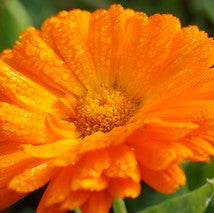Milkweed, Showy
Asclepias speciosa
This is the most common milkweed in western Oregon and the best choice for folks in the Pacific Northwest or similar climates with dry summers to attract and support Monarch butterflies. Tropical, non-native species of milkweeds may not die back as well in the winter as our native species. Theoretically, with non-native milkweed, monarchs could hang around and potentially breed at the wrong time for our climate.
Plant is a drought hardy perennial with fuzzy gray-green leaves and pale pink white flowers that come on in mid summer.
To grow our native showy milkweed from seed, you need patience. It takes about three years from seed to really get going in my experience. Seeds should be planted in the fall, in a pot or flat outdoors, as they need cold and wet to germinate. The first spring after sprouting, native showy milkweed plants are tiny and often die back over the summer. If you want to coax seeds to grow in the summer, put them in a damp paper towel and refrigerate for a couple weeks before planting them.
Adult monarchs use many species of flowers for nectar besides milkweed. Goldenrod, aster, coneflower, black-eyed Susans and other open flowers make good nectar plants.
Packet (0.4g~35 seeds)
* Growing Tip: Being an undomesticated plant, milkweed benefits from a period of cold stratification to help the seeds "wake up". To do this, one method is to plant in the fall, as wold happen in nature.
Or...you can place the seeds on a moist paper towel and put them in a plastic bag in the refrigerator for about 30 days. Check it periodically to see if mold is forming, in which case change the paper towel. This will greatly improve germination.
...



